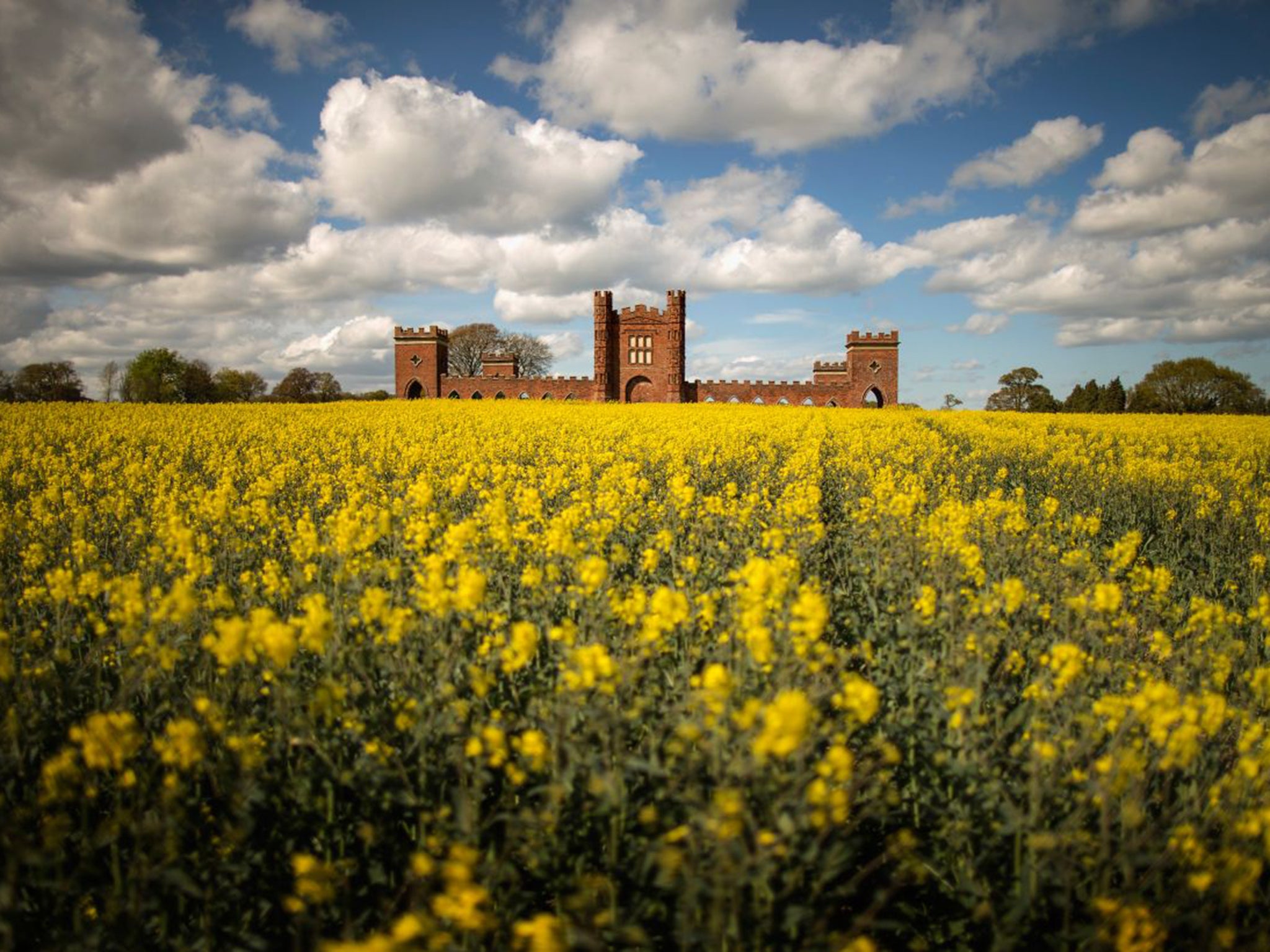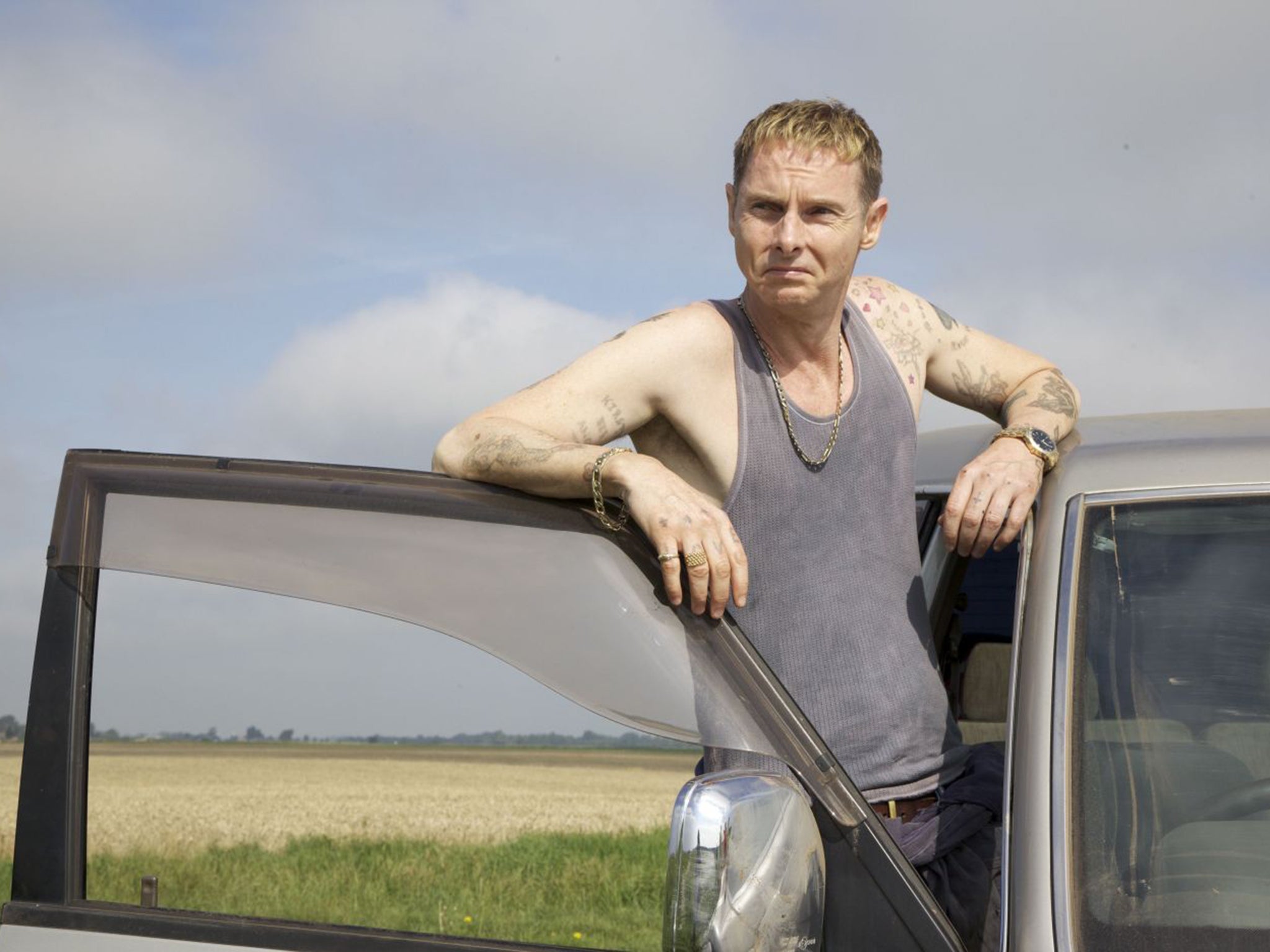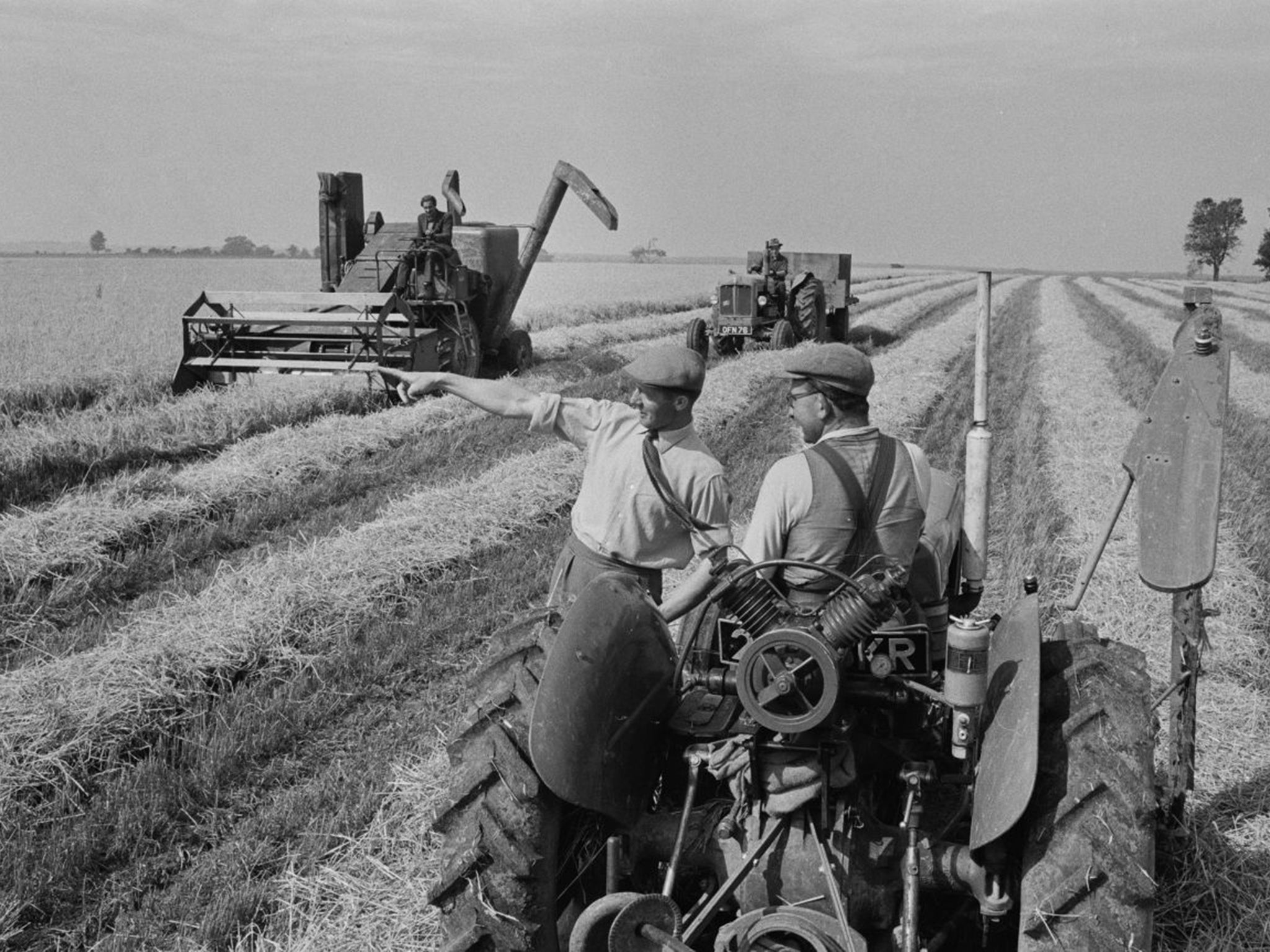The pull of the city is emptying rural England - and making it look ever more like a desert
Small towns and villages are being left to the old and unambitious, as the pace of urbanisation grows

One of the most intriguing films to hit the nation’s cinema screens this year is Guy Myhill’s directorial debut, The Goob. Its distinctiveness lies not so much in the elemental subject matter – this includes first love and a gauche school leaver’s uneasy dealings with his mother’s lairy new boyfriend – as its setting, 60 miles out of London in a Fenland hamlet where the chief source of employment is fruit-picking, and the principal recreation stock-car racing on a beaten-up track watched by an audience of slack-jawed teenage girls. Unusually for a piece of contemporary British cinema, The Goob is entirely non-metropolitan, established in a tightly knit and sequestered rural landscape with its own codes, protocols and ideas of moral justice, where London, or indeed any other decent-sized city, might just as well not exist.

Looking for a statistic or two calculated to reinforce the film’s sheer strangeness, and the sense it conveys of a community pretty much detached from the pulse of modern life, I found it in the report issued last week by the think tank Centre for Cities on the increasing pace of urbanisation and the spectacular growth that has taken place over the past decade in major English population hubs. Naturally, most of this expansion is down to the under-thirties – students and the young unemployed leaving home in search of jobs: according to census data accumulated in the first 10 years of the century, the number of people in Manchester aged between 20 and 29 has increased by 198 per cent. The comparable figure for Liverpool is 160 per cent and for Sheffield 110.
Centre for Cities is careful to file a number of caveats. As their chief executive, Alexandra Jones, points out, the rate of expansion in London, where rents are higher and shared houses already packed to the eaves, is substantially lower. There is also a warning to policymakers not to take this resurgence for granted, in that it can only be supported in the long-term by corresponding developments in infrastructure and housing. On the other hand, the demographic message is painfully clear. You are, let us say, a 22-year-old with a university degree and a yearning for an adventurous social life sitting down to plot your future. Where do you go? On this reading, Clapham, Lewisham or Pimlico – or, to move a little further north, Burnage, Walton or Brightside – will always have the edge over an easy-going county town with a view out over the wolds.
From the angle of sedate middle-age, all this seems faintly counter-intuitive. Having lived 18 years of my life in London, I said goodbye to it at the age of 40 with a profound sense of relief. The 17-stop Tube journey into work in the mornings, Concorde rattling the windows as it passed over Putney at 5.45 each evening, the nightly wail of the sirens from the Wandsworth ambulance station, the annual developer’s assault on the few remaining patches of green space, the weekly catalogue of depravity in the local paper ... each seemed to offer a compelling reason not to want to bring up one’s children in SW15, and to retreat to a place where conversations could be had in silence rather than to the accompaniment of traffic noise.
Not, of course, that urbanisation is anything new in our national life: the same endorsements of the “vibrancy” of city living were being made at around the time of the Industrial Revolution, as were the complaints about noise, inconvenience and the disadvantages of cramming half-a-dozen people into a space half the size of a tennis court. At the same time, what might be called the alterations to our national psychology brought about by this ever-accelerating flight from the land have scarcely been examined by policymakers. One of the greatest changes brought about by the mechanisation of agriculture and the disappearance from the countryside of agricultural labourers, for example, was narrowly political. The fellows who cut the hay, to use George Ewart Evans’ phrase, well drilled by their union, were traditionally anti-Conservative, with the result that, in the 1950 general election, the six Norfolk seats returned no fewer than four Labour members.
Another has to do with language, and the decline of dialect and local patois. A third has to do with sound and movement. The great chronicler of rural life Ronald Blythe (born 1922) once remarked that the difference between the Suffolk of his childhood and the Essex of his old age was an absence of people – no more labourers bicycling to work, no more children out scaring the birds – and the sheer inertia of a landscape in which the combine harvesters are in action for perhaps two weeks a year, after which everything reverts to eerie silence. The villages are full of escaping retirees, the doctors’ surgeries are hard at work boning up on advances in gerontology, and the number of live births recorded in so (comparatively) bustling a small Norfolk town as Holt (population 2,000) was, at one point in the late 2000s, reduced to a single infant.

None of this is good for Holt, for its nurseries or for the fields beyond it, in which the metro-professionals scheme to build their designer holiday homes, but it is even less good for a national culture that, for centuries, has supported itself on the distinction between rural and urban life. The Caroline poets, after all, were emphasising the gap between “court” (corrupt, immoral, soul-sapping, etc) and “country” (modest, discreet, fount of human virtue) as long ago as the 1630s. The picaresque 18th-century fiction of Henry Fielding and Tobias Smollett positively crawls with naive newcomers to the big city being gulled out of their possessions by con men, while the pre-Great War era, a time at which some of the wider implications of urbanisation were becoming uncomfortably clear, was full of retreats to a simpler, unhurried pastoralism – see, for example, Kenneth Grahame’s The Wind in the Willows (1908), where virtue resides on river banks rather than in the dirt of the urban sprawl.
These distinctions turn even sharper in the world of English pop music, which, since the late 1960s, has accommodated a dreamy, bucolic vein exemplified in the work of everyone from the early Pink Floyd (The Piper at the Gates of Dawn) to Genesis (Selling England by the Pound), Nick Drake and XTC. Even Paul Weller, who as a teenager was so besotted by the idea of London that he travelled up from Woking with a tape recorder to capture some of its sounds, soon stopped minting lines about his heart being “in the city where it belongs” in favour of paeans to “the place I love” (a “million miles away”, naturally) and elegiac memories of the Surrey Hills where, back in childhood, the singer “took my time”.
The real importance of the Centre for Cities report, consequently, lies in what it doesn’t say, and the spectral vision it conjures up of tribes in movement, those thousands of young people for whom Manchester is a better bet than Cheshire, and Sheffield a more salubrious resort than the South Riding. What we really need now is a complementary think tank called the Centre for the Countryside, capable of pointing out not only the drawbacks of a great swathe of the UK in which no one lives save the over-sixties, but the dangers, in cultural terms, of a region that is simply mythologised, endless invoked and reimagined by people who have no notion of what it actually consists. Great supporter of the Campaign to Protect Rural England that I am, there seems little point in preserving a desert. And, if we can believe the message of The Goob, most of our remaining rural population – indigenous, that is – are as desperate to get out as I was to bid farewell to East Putney.
Join our commenting forum
Join thought-provoking conversations, follow other Independent readers and see their replies
Comments
Bookmark popover
Removed from bookmarks